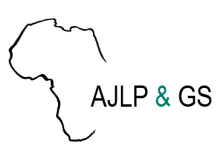/ library resources
Showing items 1 through 9 of 28.Existing studies on blockchain within land administration have focused mainly on replacing or complementing the technology for land registration and titling.
The central themes of this book are customary law, traditional leadership and local land management.
The large-scale acquisition of land by investors intensified following the 2007/2008 triple crises of food, energy, and finance. In the years that followed, tens of millions of hectares of land were leased or sold for agricultural investment.
Globally, forests provide several functions and services to support humans’ well-being and the mitigation of greenhouse gases (GHGs). The services that forests provide enable the forest-dependent people and communities to meet their livelihood needs and well-being.
Urban blight functions inversely to city development and often leads to cities’ deterioration in terms of physical beauty and functionality.
Land is a critical factor of production for improving the living conditions of people everywhere.
Decentralization policy forms part of a broader global ideology and effort of the international donor community in favor of subsidiarity and local participation, and represents a paradigm shift from top-down command-and-control systems.
The government of Ghana through the Ministry of Lands and Natural Resources of Ghana has been assisting customary land authorities to strengthen customary land administration through the establishment customary land secretariats.
Context and backgroundIn the wake of rapid urbanization and population growth, there is much contestation with the ownership and use of land globally, especially in Africa.
Paginação
Land Library Search
Through our robust search engine, you can search for any item of the over 73,000 highly curated resources in the Land Library.
If you would like to find an overview of what is possible, feel free to peruse the Search Guide.





